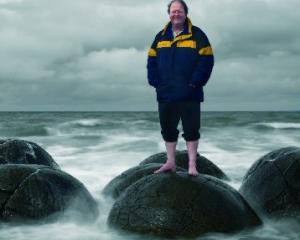In the southwest corner of Germany is Freiburg; a small city with a big reputation for environment-friendly energy solutions.
And head of the sustainability management unit in the Freiburg Lord Mayor's department is passionate sustainability advocate Ms Pflaum.
Freiburg is distinctive for its 900-year history of strong civic engagement in local issues, the diverse range of ages and ethnicities of its 220,000 residents, its carless inner city, 500km of cycle paths and large swathes of forest, Ms Pflaum says.
''Sometimes, it is too much, and I feel like I'm living in a fairy tale,'' she says.
''That is when I have to travel in order to gain a new perspective from the outside.''
Freiburg's transition to sustainability grew from opposition to local nuclear power production in the 1970s.
In 1986 the city was one of the first in Germany to adopt a climate-focused energy policy built on energy efficiency, new technologies and renewable energy.
In 1990, a 30kmh limit was introduced for almost all residential streets. Since 2005, two tram-lines have operated between the inner city and the residential eco-district of Vauban, where a third of residents have chosen to live without cars.
By 2006, Freiburg had a solar electricity generation capacity of 8.6MW.
And three years ago, the city reached its target of a 25% reduction in CO2 emissions compared with 1992 levels.
Today one-third of all journeys within Freiburg are by bike, 80% of waste is recycled and the city continues to support programmes for home insulation and energy efficiency retrofits
A World Wildlife Fund report on Freiburg, conducted in 2008, said the city's success could be attributed to a combination of community engagement and comprehensive sustainability policies.
It is an opinion echoed by Ms Pflaum, who says it continues to be a ''joint project'' to which ''everyone is contributing and is aware that it is necessary to contribute''.
''So even though it might seem difficult at the beginning, we either find ways to face the challenge or people get accustomed to it after a while.''
Conflicting objectives continue to present challenges. The goal of reducing urban sprawl, for example, conflicts with the aim of socially integrated housing and living conditions.
The city is continuing to grow, its sustainable approach attracting residents and businesses.
''Freiburg has never been a city of industry. Instead, we have been a university city since 1457, which has influenced the city's economic viability a lot,'' Ms Pflaum says.
''We are a city of science and research.
"The Fraunhofer Institute on Solar Energy Systems is well known all over the world and since we focus on solar, a lot of start-ups have grown in Freiburg.''




